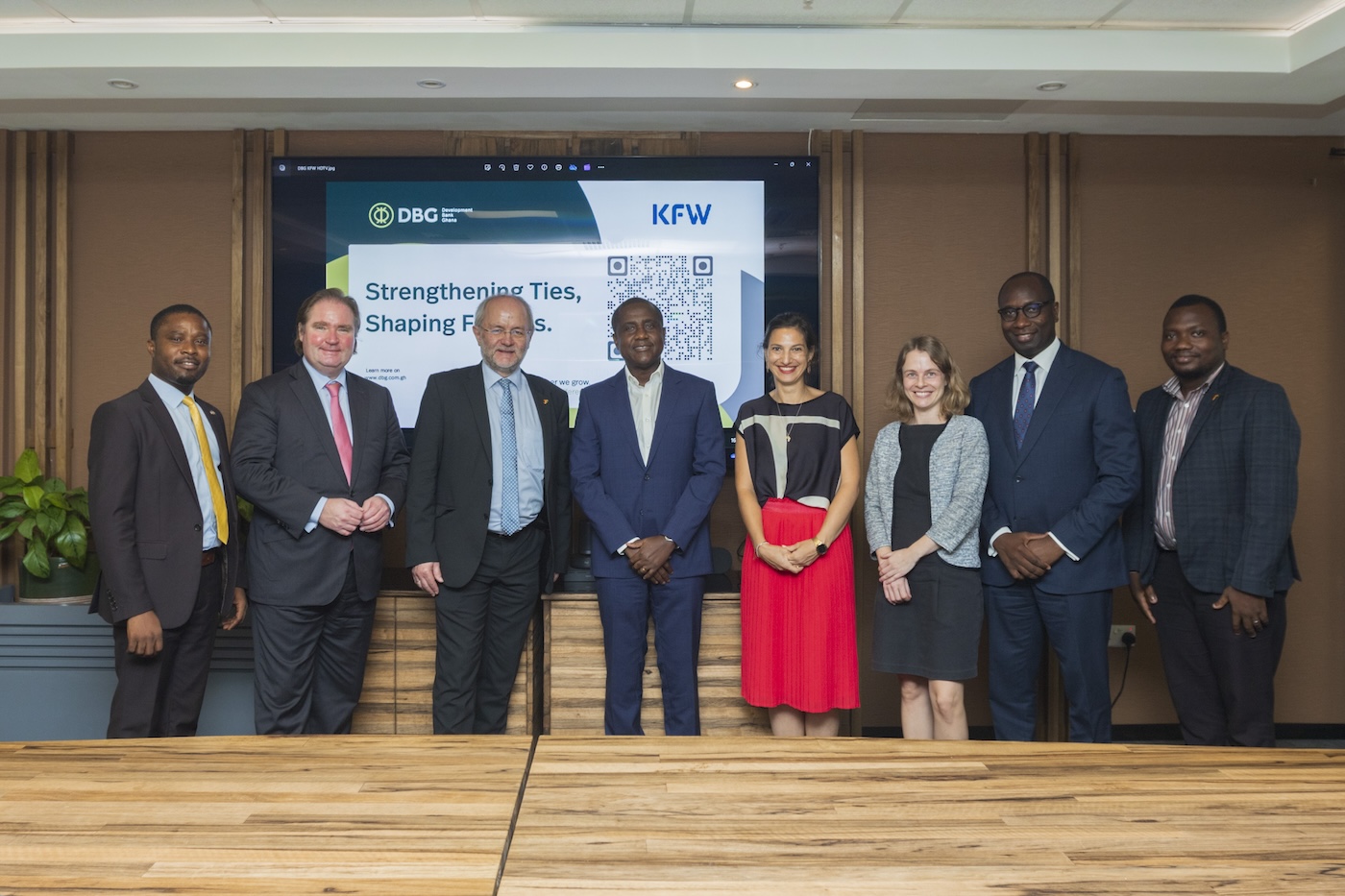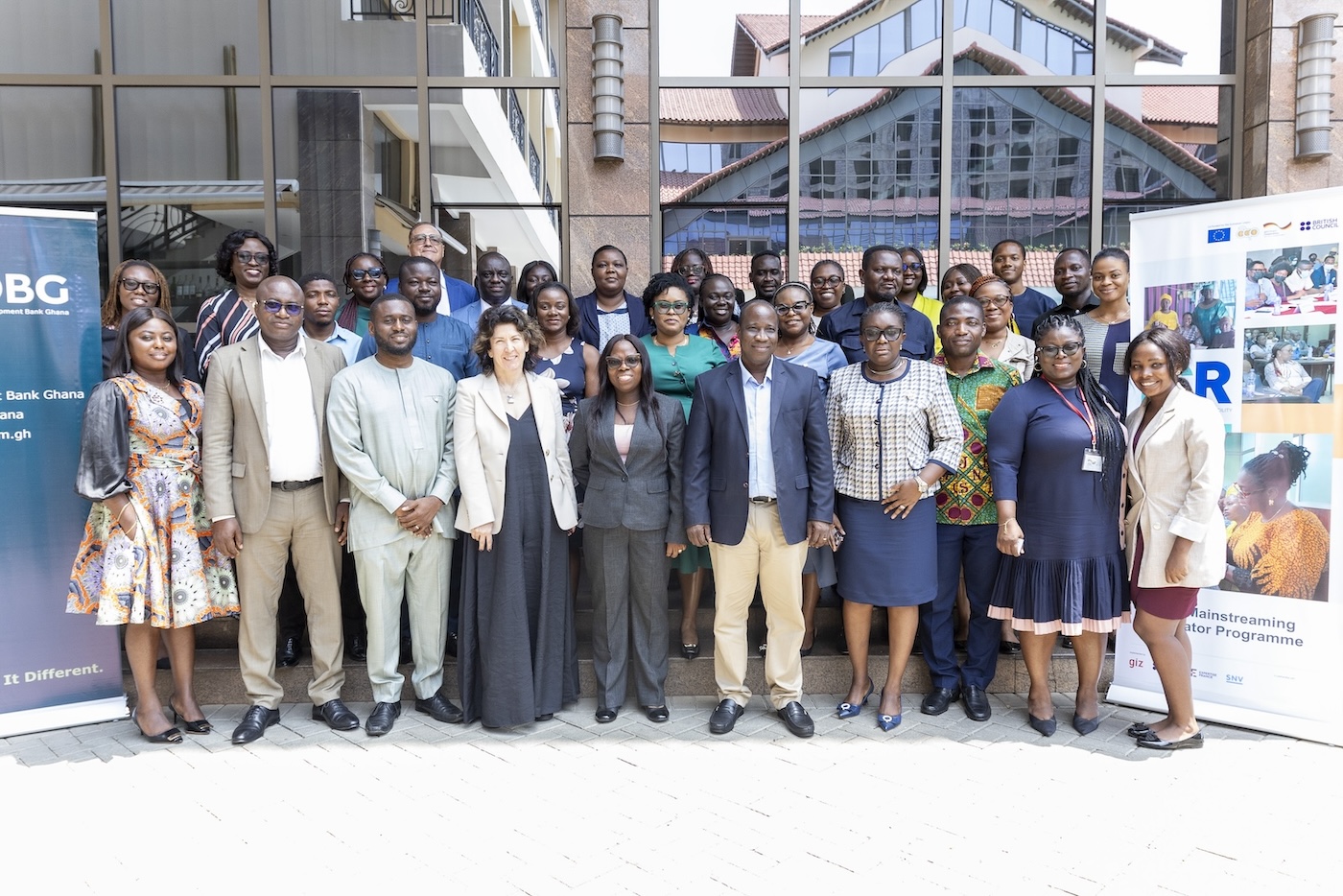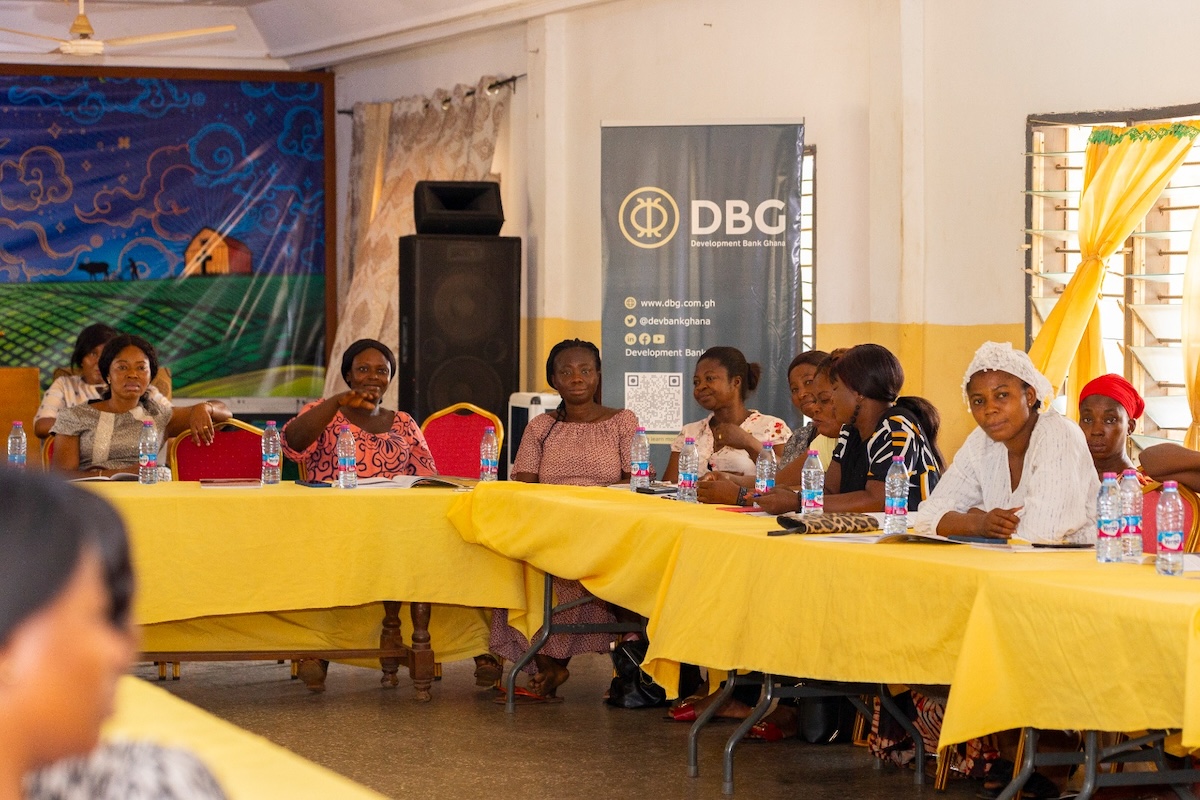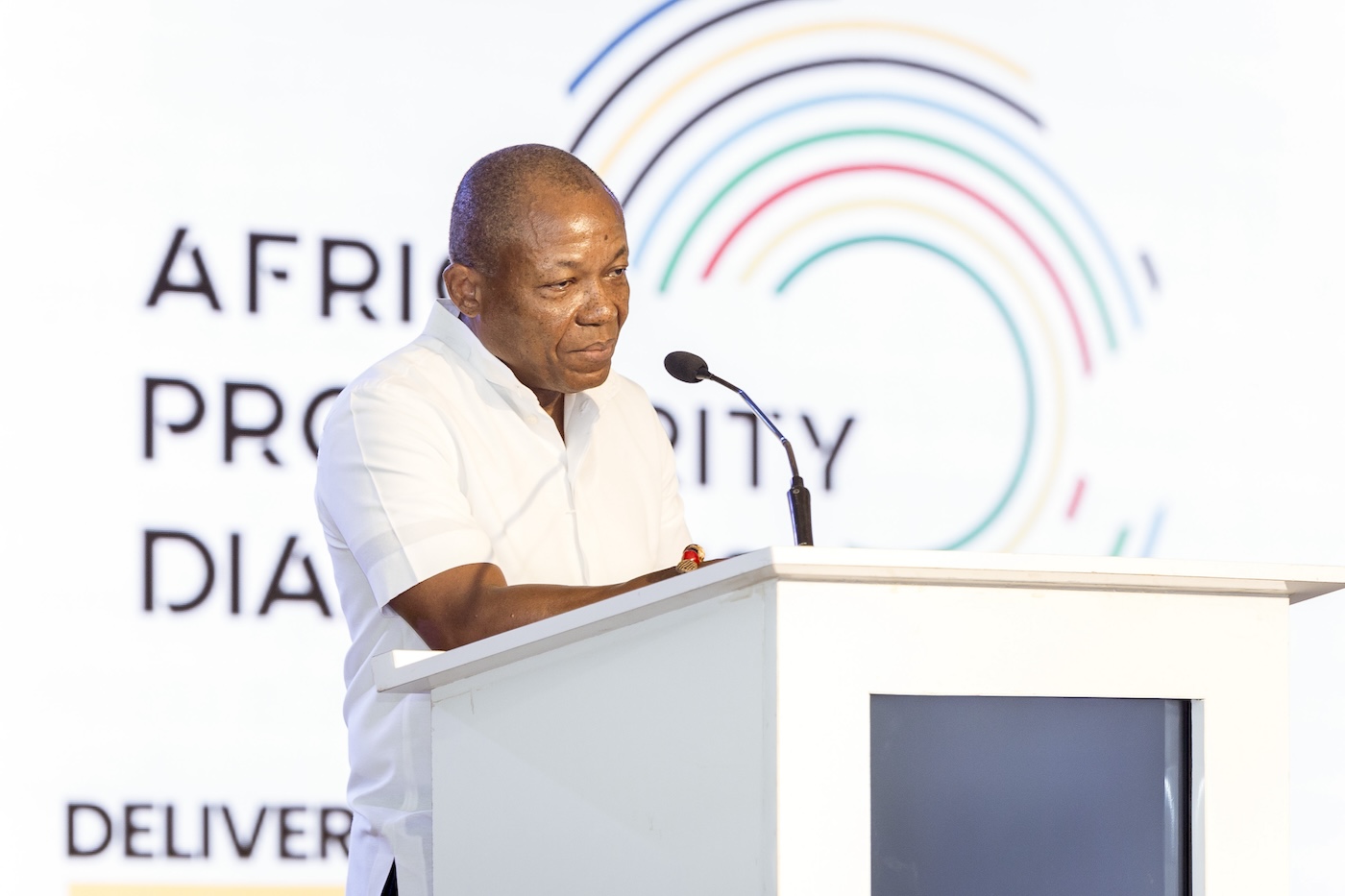Accra, 26 February 2024 – – In a bid to develop innovative financing strategies to address the peculiar needs of Micro, Small and Medium Enterprises (MSME), the Bank of Ghana (BoG), Development Bank Ghana (DBG) and the University of Ghana Business School (UGBS) have embarked on a collaborative effort by launching the ‘MSMSE Innovative Finance Study’.
In a brief event held at the offices of the Central Bank, Dr. Maxwell Opoku-Afari, First Deputy Governor of Bank of Ghana, Mr. Kwamina Duker, CEO of Development Bank Ghana and Prof. Justice Bawole, Dean of University of Ghana Business School signed a Memorandum of Understanding (MoU) to formally commission the research project which will promote understanding of the MSME sector whiles providing anecdotal evidence on the financing challenges that MSMEs face in Ghana. The study is also expected to provide recommendations on innovative ways of closing the funding gap as well as providing a reliable document that will encourage innovation in financing the critical mass of the economy, that is the MSMEs.
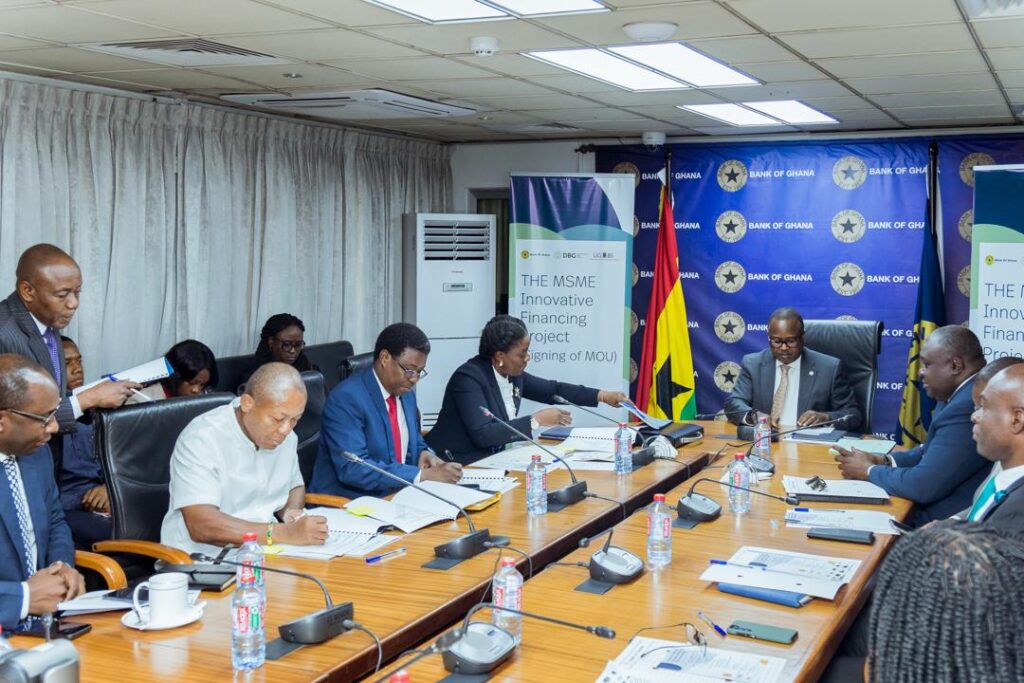
MSMEs in general have been challenged with securing access to finance for their businesses. Traditional banking models have often failed to meet the unique needs of MSMEs primarily due to high-interest rates, strict collateral requirements, and a lack of tailored financial products.
Data from Ghana’s Registrar General’s Department (RGD) indicates that 92 percent of businesses are registered as micro, small, and medium-sized enterprises (MSMEs). The majority of businesses within the MSME sector are mainly sole proprietorships, and include small retailers, market women, farmers and artisans. Evidently, MSMEs have the potential to accelerate economic development necessary for wealth creation and poverty reduction. This is due to the sector being the largest employer of vulnerable groups such as women, youth, and low-skilled workers who are most likely to be financially excluded.
DBG, guided by its vision of accelerating inclusive and sustainable economic transformation by fostering the growth of a competitive private sector, has been providing medium to long-term financing designed to address the gaps in traditional banking, thus providing MSMEs access to the needed funds and time to grow their businesses.
Reflecting on the MOU signing ceremony, K. Duker (CEO of Development Bank Ghana) expressed his delight at this partnership with BoG and UGBS on this collaborative project. He underscored the importance of the project aimed at innovatively and sustainably easing the financing constraints that MSMEs) face in Ghana through research and emphasized that providing innovative and sustainable finance is critical to the nation’s growth and prosperity. He also highlighted the strong collaboration between DBG and academia and cited DBG’s already existing partnership with UGBS to deepen development finance knowledge, build capacity for small and medium-sized enterprises (SMEs), support youth-led businesses.
Speaking at the MOU signing ceremony Prof. Eric Osei-Assibey (Project Co-ordinator) indicated that the study had become necessary in view of the role MSMEs played in job creation and economic growth, currently accounting for about 90% of jobs and contributing 70% to the country’s GDP. He stated that “When we talk about socio-economic development, there is no way we can transform our economy without transforming the micro small and medium enterprises (MSMEs)”
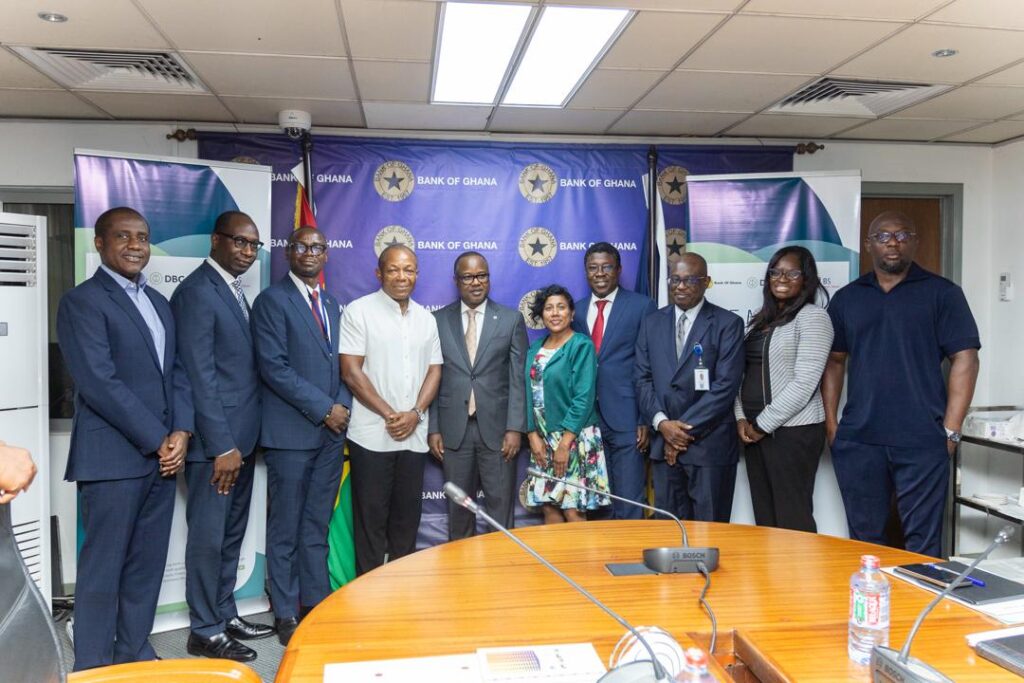
Commenting on the partnership, the Chief Economist and Head of Research at DBG, Dr. Kwabena Opuni-Frimpong said that “We at DBG believe it is crucial for all stakeholders, that is, government, the private sector, the regulator, academia, and international organisations to work together to continue supporting the development and adoption of innovative financial solutions. By doing so, we can unlock the immense potential of Ghana’s MSME sector, driving growth, creating jobs, and advancing our nation’s socio-economic development.
DBG’s mandate is to provide additional support in resolving some of the supply-side constraints of private sector growth through the provision of medium to long-term financing to 4 key sectors of agriculture, manufacturing, ICT and high-value services including tourism and transportation” he added.
The tripartite agreement which has been described as a historic collaboration between public sector, private sector and academia is expected to bridge the gap between academia and policy and also encourage future collaborations aimed at addressing the challenges that face the financial sector and the economy as a whole.
Development Bank Ghana is a wholesale financial institution established by the Government of Ghana. DBG acts as a provider of long-term capital to the market with a mission to foster strong partnerships to finance economic growth, create jobs, and build capacity for SMEs. The organisation is committed, aligned and strengthened to achieve UN Sustainable Goals (SDGs) ambitions and targets while implementing environmental, social, and governance (ESG) strategy aimed at creating shared value and impact with purpose.

